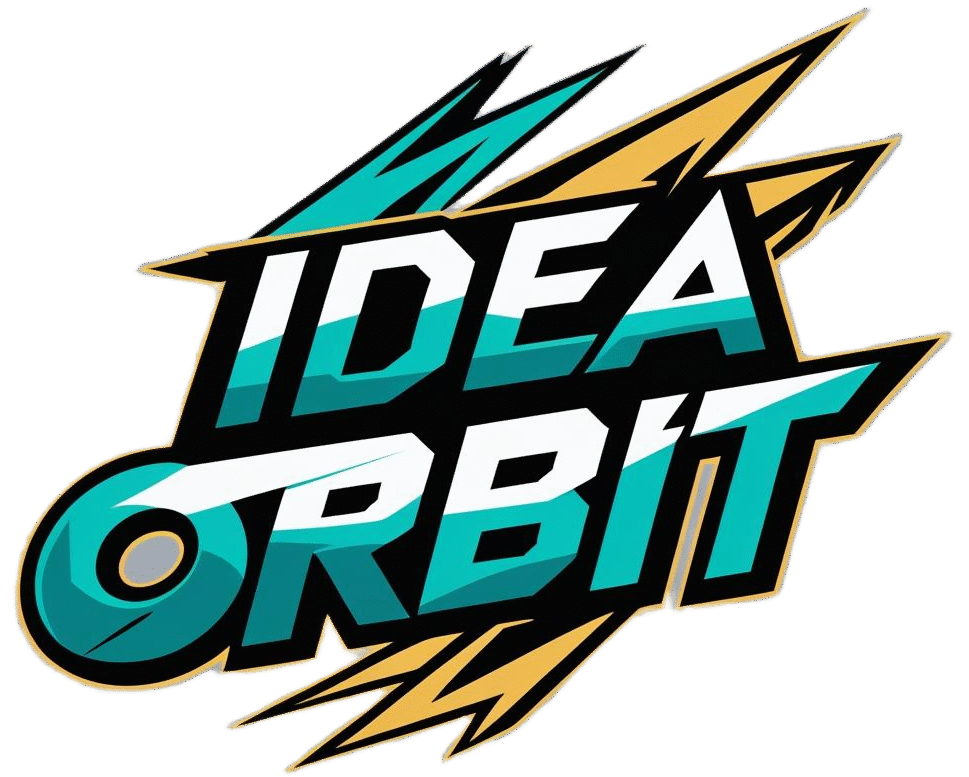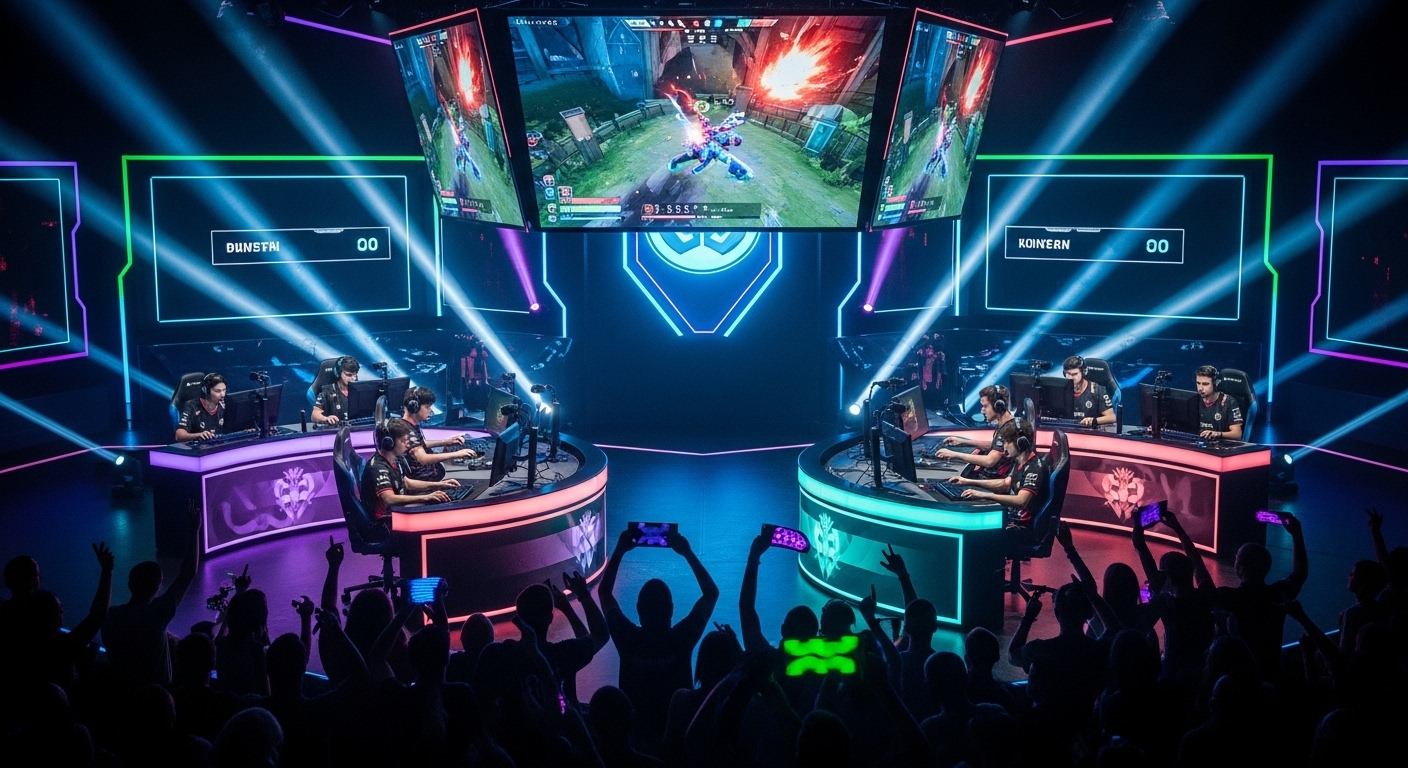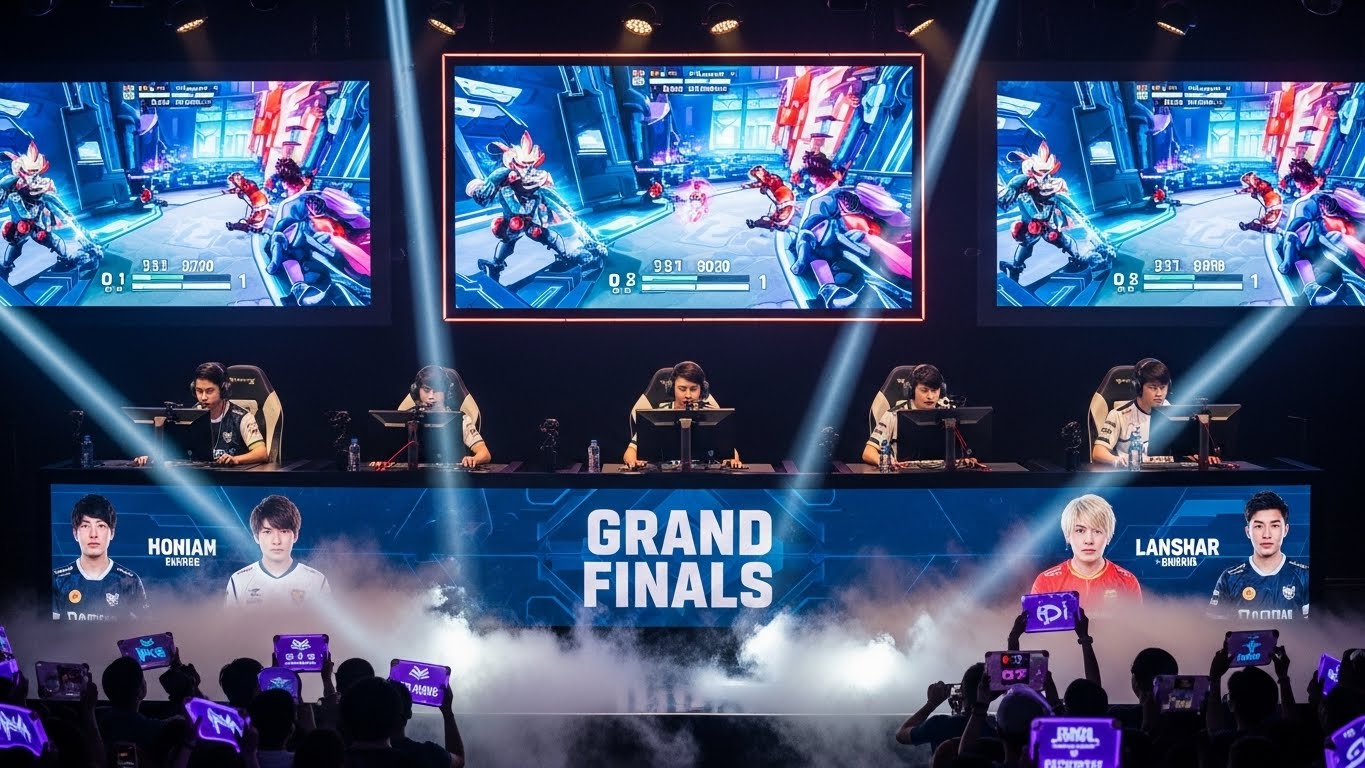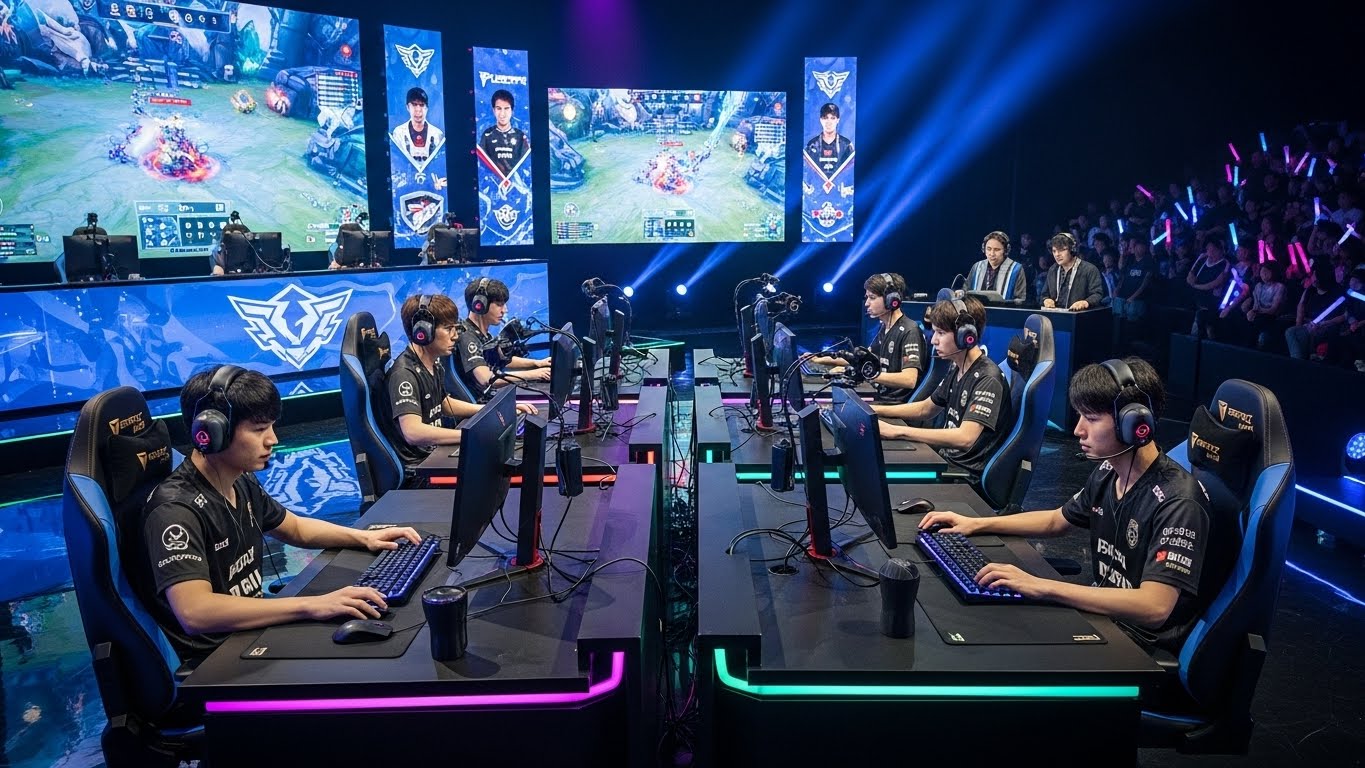Music has always been an inseparable part of human life. It influences our emotions, enhances creativity, and helps us focus on tasks in ways we often don’t realize. In recent years, researchers and gamers alike have taken a deep interest in how music affects player concentration, especially in competitive gaming and esports. Whether it’s a casual gamer listening to background beats or a professional esports athlete wearing noise-canceling headphones with curated playlists, music has become a strategic tool for improving performance and maintaining mental balance.
But how exactly does music impact concentration in gaming? Why do some players swear by it while others prefer complete silence? The answer lies in understanding how the human brain processes sound, emotion, and attention.
This article explores how music affects player concentration, how different genres influence performance, and how esports professionals use music as part of their mental preparation and gameplay routine.
The Connection Between Music and the Human Brain
To understand how music influences concentration, it’s essential to look at how our brains respond to it. Music activates multiple areas of the brain — the auditory cortex, the prefrontal cortex (responsible for decision-making), and the limbic system (which regulates emotions).
When we listen to music, our brains release neurotransmitters like dopamine, which generate feelings of pleasure and motivation. This chemical response can increase alertness and mood, two critical elements for concentration during gaming.
However, music doesn’t just affect emotions — it can also change how our brains handle focus. Rhythmic and structured sound patterns can help synchronize brainwaves, a phenomenon known as neural entrainment. This process helps maintain steady attention and rhythm, allowing players to react more consistently and reduce mental fatigue.
In short, the right music can turn the mind into a state of optimal engagement, where focus, emotion, and performance align perfectly.
Why Concentration Matters in Gaming
In gaming — especially in competitive or esports environments — concentration is everything. A single lapse in attention can be the difference between victory and defeat. Whether it’s aiming precisely in a first-person shooter, making fast strategic decisions in a real-time strategy game, or coordinating with teammates in a MOBA, maintaining focus is critical.
The challenge is that gaming demands sustained attention over long periods, often under high pressure. Fatigue, stress, and external distractions can all disrupt focus. That’s where music becomes a useful ally.
Music helps players enter what psychologists call the flow state — a mental zone of deep immersion where actions feel natural and automatic. In this state, external distractions fade away, reaction times improve, and decision-making becomes more intuitive.
For many players, music acts as a gateway to this state, helping them maintain rhythm, energy, and composure even in high-stress competitive situations.
The Role of Music in Setting the Right Mood
One of the most immediate effects of music on concentration comes from its ability to influence mood. Different genres evoke different emotions, and those emotions can directly affect a player’s focus.
For example, upbeat electronic or rock music can boost energy levels and motivation, helping players stay alert during long gaming sessions. On the other hand, calm or ambient music can reduce anxiety and keep players relaxed during strategic or slower-paced games.
Mood regulation through music also prevents frustration from building up after mistakes. Instead of dwelling on errors or losses, players can reset mentally by using music to stabilize their emotions and refocus on the next challenge.
Professional esports players often use pre-game playlists for this very reason — to create a consistent emotional state before competition begins.
Music as a Tool for Blocking Distractions
Gaming requires deep concentration, but distractions are everywhere — background noise, keyboard sounds, audience chatter, and even internal thoughts. Music serves as an effective shield against distractions, creating an auditory barrier that helps players stay locked in.
Noise-canceling headphones combined with carefully chosen tracks can isolate players from their surroundings and help them maintain steady focus. The consistent rhythm of music masks unpredictable background sounds that might otherwise break concentration.
For online streamers or content creators, music also serves as a mental anchor during long sessions. By maintaining a familiar sound environment, it becomes easier to stay consistent and resist fatigue.
How Different Genres Affect Concentration
Not all music has the same impact on player concentration. The type, tempo, and even familiarity of a song can change how it affects performance. Let’s explore how different genres influence focus and gameplay.
1. Electronic and EDM
Electronic music, especially with steady beats and minimal lyrics, is one of the most popular choices among gamers. The repetitive rhythm and driving tempo help synchronize mental focus and reaction timing.
Fast-paced tracks can enhance alertness and energy, making them ideal for competitive or action-heavy games. However, overly intense electronic music might also lead to overstimulation if used for too long.
2. Lo-Fi and Chill Beats
Lo-Fi hip-hop and ambient beats have become the go-to background music for concentration, not just in gaming but also in studying and work environments. The mellow rhythms and lack of lyrics help maintain a calm mental state while still keeping the mind engaged.
Lo-Fi music works particularly well for strategy games or long practice sessions where sustained attention and patience are required.
3. Classical and Instrumental
Classical or orchestral music can promote deep concentration and emotional balance. Its structured harmonies and lack of lyrics prevent cognitive overload. Studies have shown that certain compositions, like Mozart’s, can temporarily enhance spatial-temporal reasoning — an ability crucial in games involving quick decision-making.
Instrumental movie soundtracks also fall into this category, helping create an epic atmosphere that keeps players emotionally invested.
4. Rock and Metal
High-energy genres like rock or metal can be both a blessing and a curse for focus. For some players, the intensity fuels adrenaline and sharpens reflexes, perfect for competitive shooters or fighting games. For others, the aggressive tempo may cause mental fatigue or distraction if not managed properly.
Ultimately, the effect depends on individual tolerance and familiarity with the music.
5. Pop and Vocal Music
Pop songs with lyrics can either enhance or hinder concentration. If a player is familiar with the song, the lyrics may fade into the background, creating comfort and rhythm. But if the song is new or attention-grabbing, it might interfere with concentration, as the brain divides attention between listening and playing.
For tasks requiring heavy multitasking or complex strategies, lyric-heavy music can sometimes reduce efficiency.
6. Ambient and Nature Sounds
Some gamers prefer ambient or environmental sounds — rain, waves, or forest soundscapes. These tracks help soothe the mind and eliminate sensory overload, making them ideal for relaxation and focus.
Ambient music works well for long gaming sessions or creative play where steady concentration is needed without emotional highs and lows.
Personal Preference: The Key to Effective Music
One important truth about music and concentration is that there’s no universal rule. What enhances focus for one person may distract another. Personal preference plays a major role in determining how effective music will be for concentration.
Players who enjoy the music they’re listening to are more likely to experience positive emotional states and better focus. In contrast, listening to genres they dislike or find irritating can create tension and reduce performance.
Familiarity also matters. When a player already knows the rhythm or lyrics of a song, the brain processes it subconsciously, allowing more cognitive resources to be directed toward the game itself.
That’s why many players build personalized playlists specifically for gaming. These playlists are carefully crafted to fit their tempo, mood, and style — a form of mental preparation that enhances both comfort and performance.
The Role of Music in Esports and Professional Gaming
In professional esports, where milliseconds can decide the outcome of a match, concentration is paramount. Music has become an essential part of many players’ training routines and mental preparation.
Before matches, some esports athletes use music to get into the right mindset. Fast, energetic tracks help raise adrenaline levels and sharpen reaction times, while slower tunes can calm nerves and maintain composure.
During practice, teams sometimes allow players to listen to music individually, especially during mechanical drills. However, during live matches, music is often turned off to ensure clear communication between teammates.
Nevertheless, many players report that listening to music before competition helps them feel more centered and confident. It becomes a form of mental conditioning — a ritual that triggers focus and familiarity, preparing their minds for the challenges ahead.
Cognitive Effects of Music on Reaction and Memory
Gaming requires a unique blend of cognitive skills: quick reaction time, pattern recognition, and memory recall. Research has shown that certain types of music can positively influence these abilities.
Rhythmic music enhances the brain’s ability to predict and react to visual cues. When beats align with in-game timing or actions, it can help players develop a better sense of rhythm and anticipation.
Additionally, background music can support short-term memory retention. In complex games involving strategic planning or multitasking, steady instrumental music can help players hold multiple pieces of information in mind without cognitive overload.
However, overstimulation from fast or complex music can have the opposite effect, reducing concentration and decision-making efficiency. Finding the right balance is key.
The Impact of Silence and Environmental Sound
Interestingly, silence can be just as powerful as music when it comes to concentration. Some players perform best without any background noise, relying entirely on in-game sounds and voice communication.
Silence allows full attention to the game’s auditory cues — footsteps, gunfire, or ability sounds — which can provide competitive advantages. In esports titles like Counter-Strike or Valorant, situational awareness often depends on precise sound cues.
Therefore, while music enhances emotional control and rhythm, silence enhances sensory awareness. Many professionals alternate between the two depending on their training goals.
Music and Emotional Regulation During Gameplay
Emotional control is one of the most underestimated aspects of performance. Whether it’s excitement, frustration, or anxiety, emotions directly influence decision-making and reaction speed.
Music can act as an emotional stabilizer, keeping players from overreacting during tense moments. A calm playlist helps slow down breathing and prevent impulsive behavior, while energetic music restores confidence after a mistake.
This is particularly helpful during losing streaks, where emotional fatigue can lead to poor gameplay choices. Music gives players a mental reset — a tool to manage their emotions without stepping away from the game entirely.
Music as a Mental Anchor for Focus
Many players use specific songs as mental anchors — triggers that help them enter a state of focus quickly. By associating a certain track or playlist with intense concentration, players can train their minds to respond automatically when the music starts.
This is similar to how athletes use warm-up rituals before competitions. Over time, the brain learns to associate the music with focus, rhythm, and performance.
This conditioning helps players overcome distractions faster and reach a focused state more consistently, especially in competitive environments.
The Risks of Overdependence on Music
While music has clear benefits, it’s important to recognize that overreliance can have drawbacks. Some players may become dependent on specific tracks or soundscapes to concentrate, making it difficult to perform well in silence or during official competitions where music isn’t allowed.
Additionally, loud or highly stimulating music can lead to sensory overload, particularly in games that already have intense visual and audio input. This can cause fatigue or reduced awareness over time.
To avoid this, players should vary their sound environments — practicing both with and without music — to maintain flexibility and focus in all conditions.
The Science Behind Tempo and Brain Function
The tempo of music has a measurable effect on brain function. Faster tempos (120–140 beats per minute) tend to increase heart rate and alertness, helping players maintain high energy levels. Slower tempos (60–90 beats per minute) promote relaxation and stable focus.
For sustained gaming sessions, moderate-tempo music often works best, keeping the mind engaged without causing overexcitement. This balance supports consistent performance rather than short bursts of intensity.
Interestingly, players who synchronize their actions to a song’s rhythm often experience smoother coordination and better timing — a phenomenon observed in both gamers and athletes.
Creating the Perfect Gaming Playlist
Designing an effective gaming playlist involves more than just picking favorite songs. The goal is to create an atmosphere that enhances focus without overwhelming the senses.
Here are some tips that many players use:
- Choose instrumental or low-lyric music to minimize cognitive interference.
- Match tempo to the game’s pace — faster for action games, slower for strategy or simulation games.
- Include familiar tracks that your brain can process subconsciously.
- Use loopable playlists to maintain consistency without abrupt changes in mood.
- Adjust volume levels — loud enough to mask distractions but not so loud that it drowns out in-game sounds.
Some players even use adaptive playlists that shift genres based on their mood or game progress, helping them stay in tune with the moment.
Conclusion
Music and gaming share a deep and fascinating connection. For many players, music isn’t just background noise — it’s a performance enhancer, a motivator, and a stabilizer. It can elevate concentration, regulate emotions, and transform gaming into a deeply immersive experience.
However, the impact of music on concentration depends on balance and self-awareness. The right music can help players reach peak focus, while the wrong kind can lead to distraction or fatigue. Understanding personal preferences and adapting sound environments accordingly is key.
In the world of esports and competitive gaming, where mental endurance is as vital as mechanical skill, music has become a secret weapon — an invisible ally that helps players stay calm, sharp, and connected.
Whether it’s the steady pulse of electronic beats, the serenity of ambient sound, or the intensity of rock riffs, the power of music lies in its ability to shape the mind. It’s not just what you hear — it’s how you feel, focus, and perform.
Music doesn’t just accompany the game; it becomes part of the game itself, guiding every move, thought, and moment of concentration.



